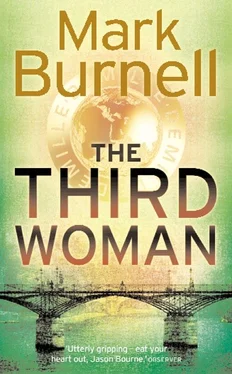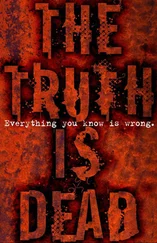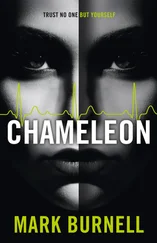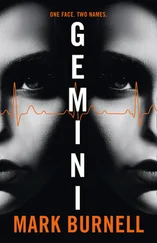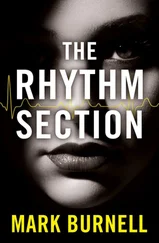Cabrini tip-toed down the stairs and through the kitchen. He paused in the shadow of the doorway that led into the restaurant, his eyes gradually growing accustomed to the gloom.
The man was making no attempt to hide. He was sitting at a table in the centre of the room. In front of him, on the red check tablecloth, was a cup and saucer.
‘Hope you don’t mind. Made myself an espresso.’
Pale-skinned, the remains of black hair greying at the temples, bald on top, in his fifties, he was wearing a navy-blue overcoat over a suit. Even in the half-light Cabrini could see how polished the tips of his black shoes were. He approved. Beside the cup and saucer was a felt hat.
‘I’m surprised you know how.’
A thin bloodless smile. ‘My wife bought a smaller version of that machine at vast expense. Naturally, she never used it. Personally, I can’t stand to see waste so I made the effort to learn myself. Now I use it every day.’ He raised the cup, took a sip, then added: ‘I’m sure we’d both be happier if you stopped pointing that gun at me.’
Cabrini laid it on the zinc counter. ‘How’d you get in?’
‘Far too easily. To your knowledge, have we met?’
‘No.’
‘But you know who I am.’
‘I have an idea.’
Gordon Wiley. A man whose instincts were more at home in Washington DC than in New York.
Wiley said, ‘Mr Ellroy is in Europe. I spoke to him earlier.’
‘What are we looking at?’
‘Salvage.’
‘What kind of assistance are we going to get?’
‘One hundred percent.’
‘What’s the damage?’
‘ Who’s the damage? That’s the question. She’s a German named Reuter. Petra Reuter. I’d never heard of her until an hour ago. And now I wish I could turn back the clock. It’s a hell of a mess over there.’
‘What about Mr Ellroy?’
‘He’s staying. Which is why he wants his favourite anchor running the show.’
Wiley collected his hat. There was a black Lincoln waiting for him outside the door in front of a dilapidated white Datsun. Cabrini watched it leave through the first fall of the snow and felt relief rather than anxiety; no more pizzas. For a day or two, at least. And in a year or so, no more pizzas ever again.
It was quarter-to-seven when he phoned his brother. ‘Michael?’
‘Christ, John, you know what the time is?’
‘I’ve got to go away.’
There was a long pause. ‘When?’
‘Now.’
‘Is it serious?’
‘Always. You know that.’
‘How long?’
‘I don’t know.’
‘You okay?’
‘I’m good. You gonna take care of things?’
‘Sure, sure. I’ll get Stevie to look after your place.’
The youngest nephew. The next in line, if the Angelo’s empire ever expanded to eight. After the call Cabrini went upstairs.
Salvage .
Well, he was the expert. Had been for twenty years. It was never pretty but then again it wasn’t a beauty pageant. Besides, he hadn’t had a failure yet. That was all that mattered.
He replaced the Ruger P-85 in the drawer of the bedside table. In the bathroom, he shaved. Most days, he didn’t bother. Serving behind the counter he preferred to be unshaven, sallow, dreary. Invisible to his customers. A fifty-five-year-old man dispensing pizzas; hardly one of life’s successes.
Beneath the weak light falling from the naked bulb was a lean man. The slight stoop and shuffle that his customers saw made him weak. But when he stood upright and walked with purpose, he appeared as he was: fiercely fit. He watched the welcome transformation in the mirror as he combed his hair and dabbed some Christian Dior aftershave on each cheek.
He returned to the bedroom, half-resurrected. Cabrini had always favoured fine clothes but almost everything he wore came from discount stores. In the back of the cupboard, however, was a tailored suit by Huntsman of London. Five years old, a masterpiece in fabric, Cabrini knew it would last the rest of his life. He laid it on the bed, then selected a pair of Lobb shoes and a black silk polo-neck that had been specially made for him by Clive Ishiguro.
His salvage uniform. He was the leader, he set the tone. It felt good to be able to shed the shoddy disguise from time to time.
When the farm overlooking Orvieto was ready, he would move to Italy and never return, content to comfort himself over the permanently painful loss of Evelyn by surrounding himself with beautiful things. A garden, porcelain, paintings, clothes, music.
The rusting white Datsun was twenty-one years old. Cabrini and Evelyn had bought it together. It was the only car he’d ever owned. He’d never wanted another. From Harlem to Brooklyn, he peeled off the Long Island Expressway and circled beneath it to the waterfront and a stretch of warehouses that were still awaiting development.
Cabrini came to the loading bay of the third warehouse: R.L. Gallagher Inc. Noiselessly, a large gate lifted. Cabrini drove to the back of the docking area, parked and then stepped into the waiting cargo lift. On the fourth floor, he crossed a vast storage area that was deserted, except for two matt black cabins on steel struts. The large sets of wheels which were now six inches clear of the floor were only just visible in the draughty darkness. Up a flight of aluminium steps was a sealed door. Beside the door, mounted on the wall, was a matt grey panel. He placed his face in front of it and said, ‘Cabrini, John, place of birth, Cleveland, Ohio.’
Cabrini had been born in New York but that didn’t matter. The biometric plate analysed voice timbre, the pattern of blood vessels in the retina, and traces of breath composition, a process that currently took between two and five seconds.
When the door parted with a hiss, John Cabrini stepped into a sanitized airlock of ultraviolet light.
Stalingrad, at the point where boulevard de la Chapelle becomes boulevard de la Villette. Overlooking the steel delta of rail fanning out of Gare de l’Est, the crumbling building was itself overlooked by an elevated section of the Métro. As Stephanie descended to the street the iron struts overhead began to creak. A train on the Nation-Porte Dauphine line was approaching. Pigeons fluttered at her feet.
The address was five storeys of peeling plaster and broken windows. There were commercial premises at street level. Not that many looked very commercial. Rusting shutters hid half of them. The rest were not busy; discount stores peddling cheap clothing, Chinese luggage, basins and toilet bowls in avocado and salmon pink. There was a bar-nightclub at one end. Coral was the name stencilled on to the dirty red canopy beside a cream silhouette of two entwined women.
Stephanie walked through an archway into the untended courtyard behind. Swing doors led to a staircase; unlit, cold, damp. The graffiti was as original as ever: Marie Z, I love you, Antoine; PSG are shit; Jim Morrison 1943–1971; Marie Z is a fucking slut . The apartment was on the third floor at the end of the corridor. From each door she passed came a different sound, a crying child, Arab rap, a barking dog. She smelt fried meat, sour tobacco, a pipe in need of a plumber.
The door had been recently replaced. The scratches on the frame hadn’t been filled or painted. Both locks were still shiny. She knocked twice then tried the keys she’d found in Golitsyn’s attaché case.
‘Hello?’
No answer. She stepped inside. It was dark. Instinctively, she withdrew the Smith & Wesson from the pocket of her MaxMara coat.
There were two main rooms, the curtains partly drawn in both. A cramped living area overlooked the street, the bedroom overlooked the rail-tracks. There was a tiny shower cubicle next to a toilet and sink. The woman in the agency had already mentioned that; a real luxury in that place – no communal toilet . A greasy film of green mould was colonizing the shower curtain. In the living area, a portable gas stove sat on the floor beside a small fridge. In the sink was a cracked glass, cutlery and a dirty plate. Two cockroaches crawled over a sauce that had dried to a dark brown crust.
Читать дальше
